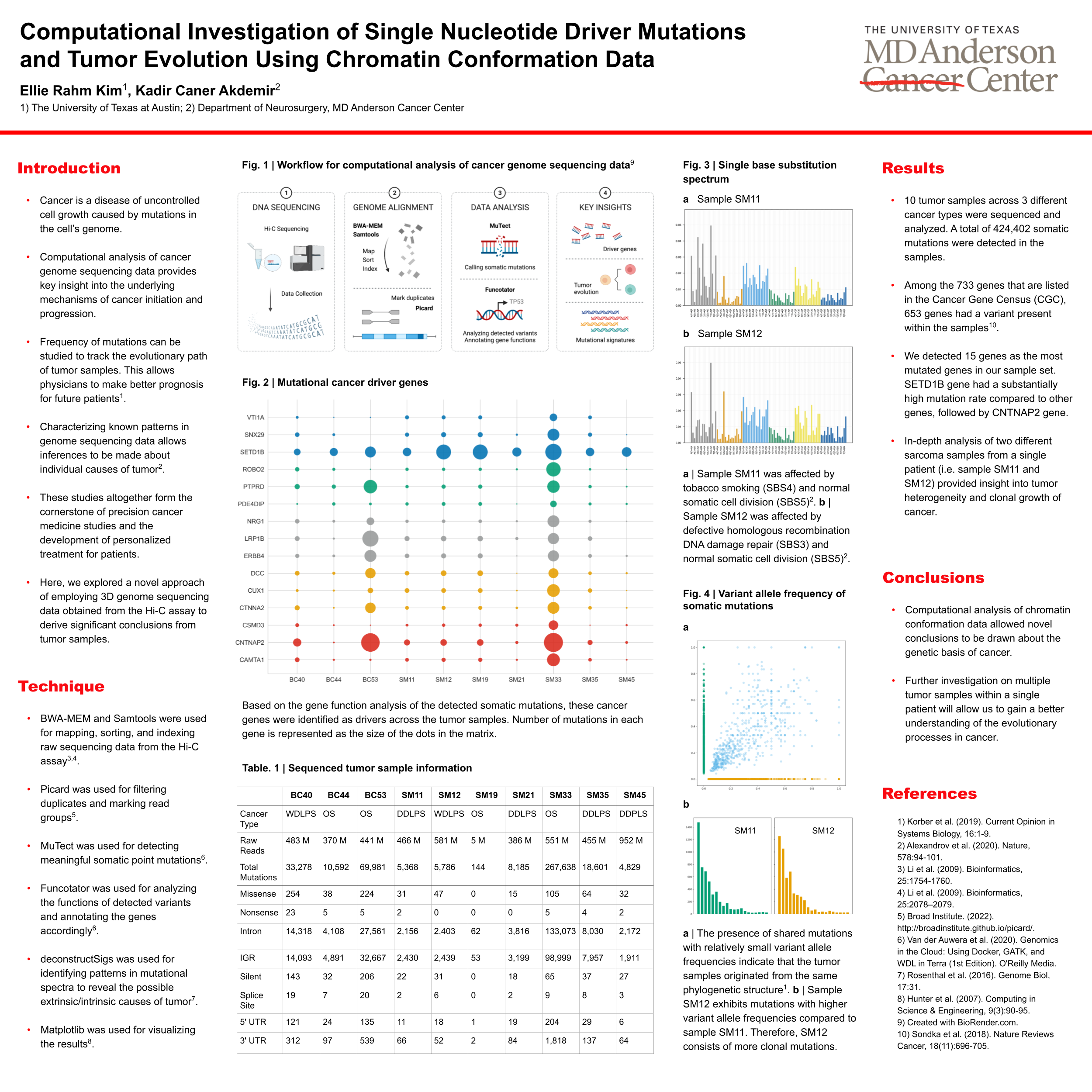#Cancer Driver Mutations
Computational Investigation of Single Nucleotide Driver Mutations
and Tumor Evolution Using Chromatin Conformation Data
This project was conducted during the Summer of 2022 in the Akdemir lab at the Department of Neurosurgery at MD Anderson Cancer Center.

Abstract
Computational analysis of cancer genome sequencing data provides key insight into the underlying mechanisms of cancer initiation and progression. Frequency of mutations can be studied to track the evolutionary path of tumor samples, which allows physicians to make better prognosis for future patients. Characterizing known patterns in genomic data allows inferences to be made about individual causes of cancer. These studies altogether form the cornerstone of precision cancer medicine. In this research project, we explored a novel approach of employing 3D genome sequencing data obtained from the Hi-C assay to derive significant conclusions from tumor samples.
To investigate the 3D tumor genome sequencing data, we used open-source softwares. First, we used BWA-MEM and Samtools to map, sort, and index raw data from the Hi-C assay. Then, we used Picard to filter duplicates. MuTect and Funcotator from Genome Analysis Toolkit were utilized for detecting somatic point mutations, analyzing the functions of variants, and annotating the genes. To reveal the possible causes of tumor, we used deconstructSigs which identified the patterns in mutational spectra.
In the study, 10 tumor samples across 3 different cancer types were analyzed. A total of 424,402 somatic mutations were detected. Among the 733 genes that are listed in the Cancer Gene Census (CGC), 653 genes had a variant present within our samples. We detected 15 genes as the most mutated genes in our sample set, with SETD1B gene having a substantially high mutation rate. Moreover, in-depth analysis of two different samples from a single patient provided insight into clonal growth of cancer.
Investigation of tumor sequencing data allowed novel conclusions to be drawn about the genetic basis of cancer. Further investigation on multiple tumor samples within a single patient will allow us to gain a better understanding of the evolutionary processes in cancer.